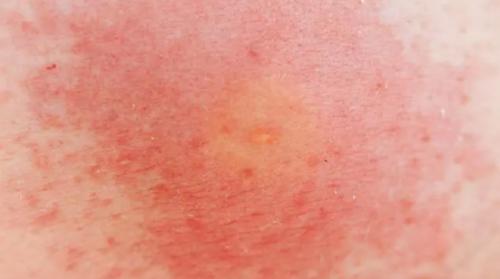What Do Do If You Have A Wasp Sting Allergy And Get Stung

Experiencing an allergic reaction to wasp stings can be a severe and potentially life-threatening situation.
It is crucial for individuals with this allergy to be well-informed and prepared in case of a wasp sting. This article aims to provide a comprehensive guide on how to handle allergic reactions to wasp stings, ensuring your safety and well-being.
Recognize the Symptoms
Being aware of the signs of an allergic reaction to a wasp sting is essential for prompt action. Common symptoms include intense itching or hives at the sting site, swelling beyond the sting area, difficulty breathing, wheezing, chest tightness, dizziness, lightheadedness, fainting, and gastrointestinal issues like nausea, vomiting, or diarrhea.
Seek Immediate Medical Help
If you experience severe symptoms or have a known allergy to wasp stings, it is crucial to seek immediate medical assistance. Contact emergency services or visit the nearest emergency room without delay. Time is of the essence as anaphylactic reactions can escalate rapidly.
Administer Epinephrine
If you have been prescribed an epinephrine auto-injector (such as an EpiPen), use it promptly after a wasp sting. Epinephrine helps counteract severe allergic reactions by constricting blood vessels and relaxing airway muscles. Familiarize yourself with the proper usage of the auto-injector and ensure you always carry it with you.
Remove the Stinger
If the wasp's stinger is still embedded in your skin, it is important to remove it quickly. Use a scraping motion with a flat, firm object like a credit card or your fingernail. Avoid squeezing or pinching the stinger, as it may release more venom.
Apply Cold Compress
Reducing swelling and alleviating pain can be achieved by applying a cold compress or ice pack to the affected area. Remember to wrap the compress in a thin cloth to protect your skin and prevent direct contact, as extreme cold can cause tissue damage.
Take Antihistamines
Over-the-counter antihistamines like diphenhydramine (Benadryl) can be helpful in relieving itching and reducing allergic reactions. Follow the recommended dosage instructions and consult a healthcare professional if needed.
Avoid Scratching
Although the itching sensation can be intense, it is important to avoid scratching the sting area to prevent further irritation or potential infection. Instead, apply a soothing, over-the-counter hydrocortisone cream or take a lukewarm bath with colloidal oatmeal to calm the skin.
Stay Alert and Prepared
Prevention is key, so exercise caution when spending time outdoors, particularly in areas with a high presence of wasps. Wear protective clothing such as long sleeves, pants, and closed-toe shoes, and consider using insect repellents. Be mindful of your surroundings and avoid provoking wasps.
Educate Others
Inform your family, friends, and close contacts about your allergy to wasp stings. Teach them the signs of an allergic reaction and the appropriate steps to take in case of an emergency. Building a support system that is knowledgeable and prepared can be immensely helpful.
Being allergic to wasp stings requires proactive measures for your safety. Swiftly recognizing the symptoms, seeking medical assistance, administering epinephrine, and taking steps to alleviate symptoms are crucial in managing an allergic reaction.
By following these precautions, you can navigate outdoor spaces with a sense of calm while minimizing the risks associated with wasp stings.
---
This article was written in conjunction with Zest Wasp Removal

Comments